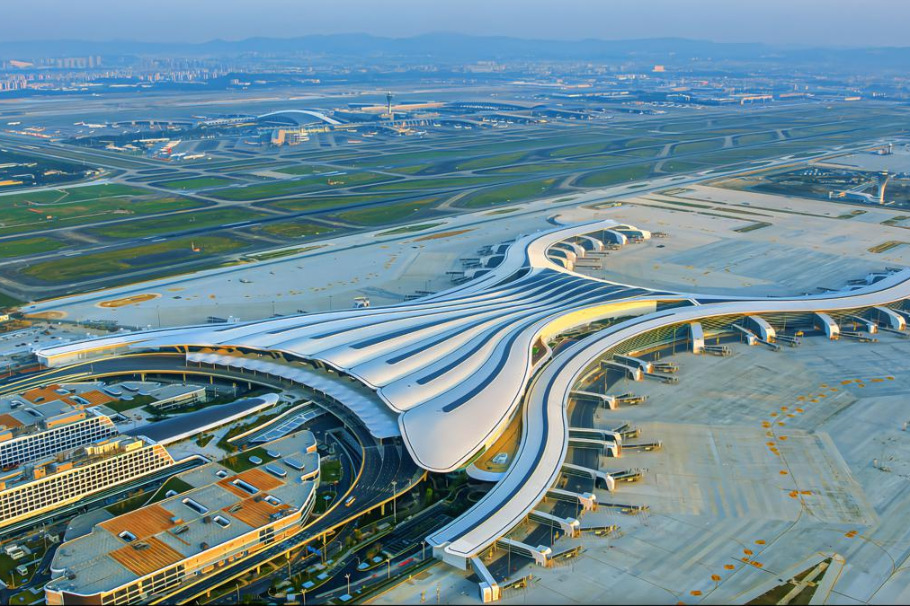Great business confidence to be engine of GBA


Hong Kong, one of the most fertile regions in the world for doing business and which plays a key role in the Guangdong-Hong Kong-Macao Greater Bay Area, is well positioned for helping domestic companies go global.
The city has the cachet of being an international business hub and financial center for decades, thanks to the free flow of capital and a simple tax regime, said Ben Simpfendorfer, chair of the Greater Bay Area Council at the American Chamber of Commerce, and a partner at management consultancy Oliver Wyman. Hong Kong now has more agency and opportunities to help with internationalizing mainland companies.
"Hong Kong is always changing and that's why we are excited by the new opportunities constantly emerging," said Simpfendorfer.
The 2022 AmCham Hong Kong Business Sentiment Survey of its members revealed that 60 percent of businesses are already operating in the Greater Bay Area, with Shenzhen and Guangzhou the most popular cities, and at least 40 percent of companies plan to expand their operations in the Greater Bay Area over the next few years.
"It's clear that our members are very excited about the opportunities. We see it as a very positive signal," said Simpfendorfer.
In the Outline Development Plan for Greater Bay Area introduced in 2019 "there's an aspiration to introduce international standard practices across all industries", which in essence mirrors the Greater Bay Area's forward-thinking and international mindset for bringing its domestic companies into the global arena, said Simpfendorfer. "Let's not forget that we are an international business hub, and we are here to help mainland GBA companies to go global and internationalize their business.
"Our mission has always been to develop Hong Kong as an international business hub," he added.
But to make that internationalization happen, he noted, mutual recognition of professional qualifications is needed between the mainland Greater Bay Area cities and Hong Kong. There's a refrain among some professionals and senior executives based in Hong Kong that they weren't given a green light to service firms across the border because their qualifications were not aligned with their equivalents on the mainland, said Simpfendorfer. In order for foreign companies in the city to work with, service and cross-pollinate ideas with mainland firms "we need to be able to apply uniform international standards and qualifications", he contended.
Acknowledging that this issue has been on the radar of policymakers and industry leaders from both sides for some time-the Closer Economic Partnership Arrangement was signed back in 2003 looking at the engineering and accountancy sectors-Simpfendorfer expects that cross-region qualification recognition in the financial sector will be gradually addressed.
"We are seeing steady improvements," he said. "The improvement in the infrastructure, the high-speed rail, the development of the Northern Metropolis … will all allow senior executives as well as other talents to be able to commute across the border on a daily or weekly basis."
A widely accepted philosophy is that consumer confidence in a brand elicits purchasing desire and dictates purchasing behaviors. In the same vein, Simpfendorfer believes confidence in the business environment is the fundamental ingredient and will serve as a catalyst for international firms to plunge into financial activities in the mainland market.
Mingling with established companies in the Greater Bay Area and rubbing shoulders with local policymakers as well as industry visionaries could be the best way to understand "what is the scale of a city and the level of development in a city", and to gauge if the potential market meshes with a firm's values, objectives and road map, he said.
Among recent visits Simpfendorfer cited was a meeting with a vice-mayor of Shenzhen and senior officials in Guangzhou. What the member companies of the chamber are seeking from the high-profile dialogue with the mainland cities' leadership is "clarity" on policies for doing business there "to understand what the implications of those policies are for their businesses, precisely, business setup, legal and tax issues", said Simpfendorfer.
For uninitiated foreign companies that have had little exposure to mainland business culture, they want not only to ready themselves for the opportunities but also to prime themselves for the possible obstacles, or the "potential pain points", as Simpfendorfer put it, before they take the plunge.
Therefore, the chamber has helped its members arrange networking with international companies with offices in the mainland Greater Bay Area, such as FedEx and KPMG. Any bumps in the path to their successful establishment in the Greater Bay Area can be chalked up to experience-and it's such experience that, if shared, could render the learning curve of newcomers to the mainland business environment less steep.
"On the ground practical experience", and know-how to maneuver through the choppy patches are very important to international companies that have set their sights on the Greater Bay Area, said Simpfendorfer, and building relationships with established companies there gives them "street cred", and "provides them with the confidence to invest across the border in the mainland GBA region".
- 1,290 organizations and 1,990 individuals awarded for contributions to elderly care
- Suspects held in Cambodian crackdown on online fraud
- China holds open attitude towards developing Sino-US military ties
- Guangzhou Baiyun Airport opens Terminal 3 and fifth runway
- Xi says China confident, capable to navigate all kinds of risks, challenges
- China's defense chief to attend the 12th ASEAN Defence Ministers' Meeting-Plus





































